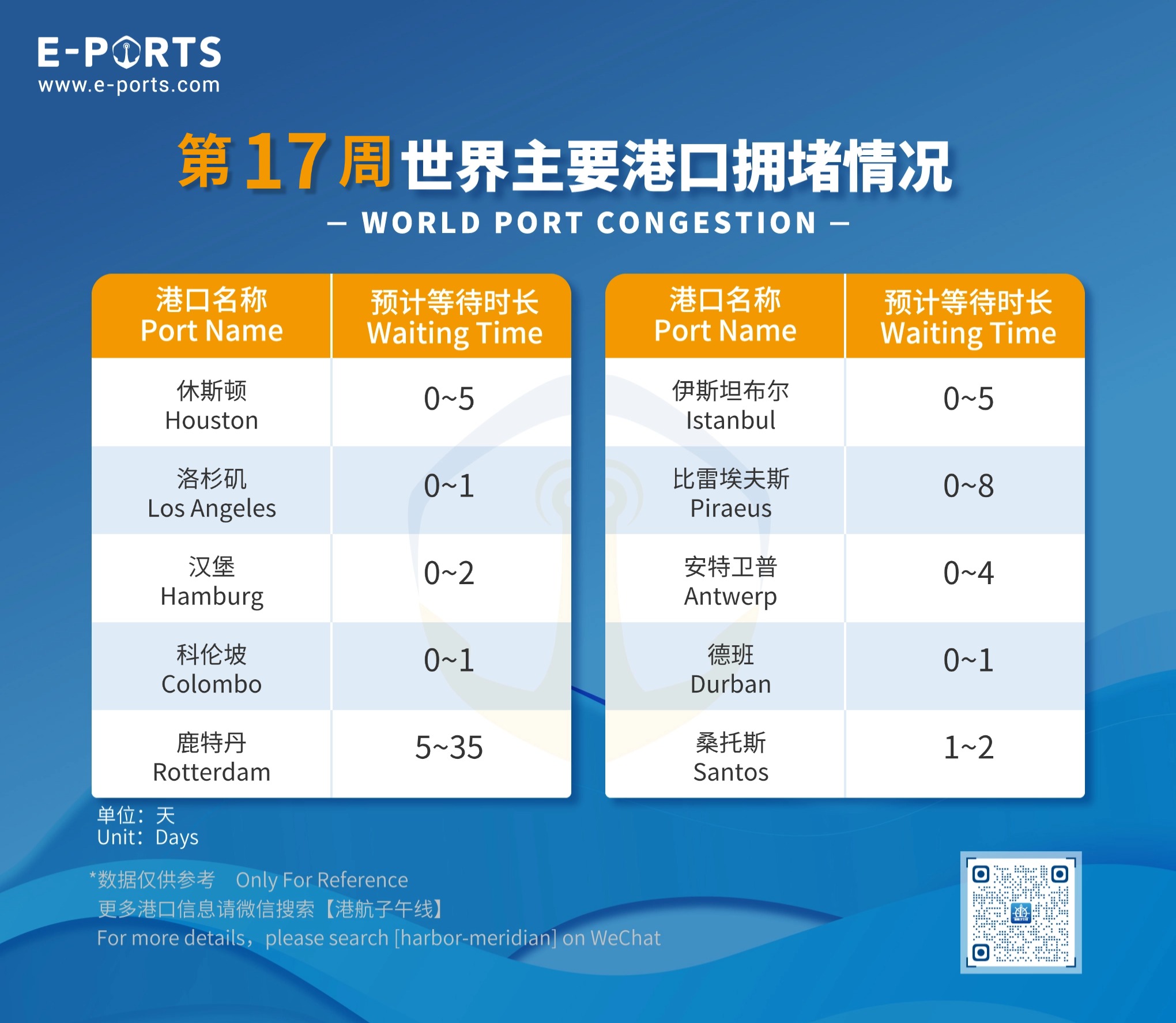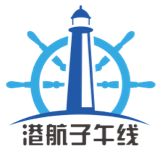Port Congestion | 17-Week Line-Up: All Japanese Ports Announce Strikes, Multiple Ports in Northern Europe Face Congestion 港口拥堵 | 17周 line-up 日本所有港口宣布罢工 北欧多个港口面临拥堵
Port Congestion | 17-Week Line-Up: All Japanese Ports Announce Strikes, Multiple Ports in Northern Europe Face Congestion
港口拥堵 | 17周 line-up 日本所有港口宣布罢工 北欧多个港口面临拥堵
Overview of Congestion
拥堵情况简介
All Japanese Ports Announce Strikes
日本所有港口宣布罢工
A national port crisis is emerging in Japan! Since March, over 17,000 dockworkers have initiated multiple rounds of strikes, bringing cargo operations at major international hubs such as Tokyo, Yokohama, and Osaka to a complete standstill. This has severely impacted supply chains across Asia and globally. The latest confirmed 48-hour shutdown from April 26–27, along with subsequent plans, is set to exacerbate the logistics crisis.
日本全国港口陷入瘫痪危机!超过17,000名码头工人自3月起发起多轮罢工,导致东京、横滨、大阪等国际枢纽港货物作业全面停滞,亚洲乃至全球供应链面临严峻冲击。最新确认的4月26-27日48小时停摆及后续计划将加剧物流危机。
Japan Port Strike Schedule
|
Date |
Strike Duration |
Impact Scope |
Current Status |
|
March 30, April 13 |
24 hours each |
Nationwide ports |
Concluded |
|
April 20 |
24 hours |
Nationwide ports |
Concluded |
|
April 26–27 |
48 hours |
Nationwide ports |
About to commence |
|
May 11 (Sunday) |
24 hours |
Nationwide ports |
Scheduled |
日本港口罢工时间表
|
日期 |
罢工时长 |
影响范围 |
当前状态 |
|
3月30日、4月13日 |
24小时 |
全国港口 |
已结束 |
|
4月20日 |
24小时 |
全国港口 |
已结束 |
|
4月26日–27日 |
48小时 |
全国港口 |
即将启动 |
|
5月11日(周日) |
24小时 |
全国港口 |
计划中 |
Supply Chain Emergency Risk Warning
供应链紧急风险提示
During the strikes, all port loading and unloading operations will be fully disrupted. After resumption, vessel detention times will be prolonged, port congestion will worsen, and severe delays are anticipated for automotive, electronic, mechanical, and retail goods. This will lead to surges in diversion transportation costs, port detention fees, and warehousing expenses. Additionally, there will be a shortage of containers in Japan and surrounding transit hubs.
罢工期间所有港口装卸作业全面中断,复工后船舶滞留时间延长,港口拥堵加剧,汽车/电子/机械/零售货类将出现严重延误,改道运输、滞港费、仓储成本激增,日本本土及周边中转枢纽集装箱短缺。
Severe Congestion Issues in Multiple Northern European Ports
北欧多个港口拥堵问题严重
The congestion in major Northern European ports, coupled with low water levels in the Rhine River, has created a “compounding effect,” bringing the regional logistics network to the brink of paralysis. Urgent measures are required to address the sustained high pressure expected over the next 3–4 months! Water levels at three critical points—Kaub, Cologne, and Duisburg-Ruhrort—are all below operational standards.
In particular, the congestion and operational disruptions at the ports of Antwerp and Bremerhaven are worsening. The port congestion stems from a combination of factors: adjustments to shipping alliance routes, reduced water levels in Europe's inland waterways, labor shortages during the Easter holiday, and strike actions. These factors have collectively led to a surge in terminal yard density, with the number of stranded containers exceeding the normal operational capacity of the ports.
北欧主要港口拥堵与莱茵河低水位形成“叠加效应”,区域物流网络濒临瘫痪,需紧急应对未来3-4个月持续高压!科布(Kaub)、科隆(Cologne)、杜伊斯堡-鲁罗尔特(Duisburg Ruhrort)三处水位全线低于运营标准。
尤其是安特卫普港和不来梅哈芬港的拥堵状况与运营中断问题正持续加剧。港口拥堵源于多重因素叠加影响,包括航运联盟航线交替调整、欧洲内陆动脉航道水位下降、复活节假期用工短缺,以及罢工行动等。这些因素共同导致码头堆场密度激增,集装箱滞留数量已超出港口正常运营负荷。
In terms of rail transport, trains heading to Bremerhaven and Wilhelmshaven are experiencing severe delays due to the sudden closure of railway lines near Hanover and a landslide near a key railway hub. The alternative routes, which add an extra 200 kilometers, are already operating beyond capacity, forcing the suspension of multiple trains. This directly impacts the land transport link between Rotterdam and Duisburg. Meanwhile, Hamburg Port's rail operations are also being hindered by frequent delays in terminal operations.
A spokesperson for the Port of Antwerp-Bruges stated, "The current port throughput is indeed high. This is partly due to the transition and adjustment of new shipping alliances, which will take several weeks to stabilize. Additionally, the anticipation of increased import tariffs by the U.S. has accelerated the concentration of export shipments."Against this backdrop, shipping companies are urging shippers to promptly collect discharged cargo and deliver export containers as late as possible to alleviate terminal operational pressure and enhance turnover efficiency.
铁路运输方面,通往不来梅港和威廉港的列车正遭遇严重延误,原因是汉诺威周边铁路线路突发封闭,一处关键铁路枢纽附近还发生了山体滑坡。替代线路不仅绕行距离长达200公里,而且早已超负荷运行,导致多班列车被迫停运,直接影响鹿特丹和杜伊斯堡之间的陆路联通。与此同时,汉堡港的列车周转也因码头作业延迟频发而雪上加霜。
安特卫普-布鲁日港的一位发言人表示:“目前港口吞吐量的确处于高位,这一方面是因为新的航运联盟正在进行交接与调整,尚需数周时间才能稳定;另一方面,美国加征进口关税的预期也加速了出口货量的集中出货。”在此背景下,航运公司呼吁托运人尽快提取已卸货物,并尽可能晚些时间交付出口箱,以减轻码头作业压力、加快周转效率。
Major Chinese Ports Face Congestion Due to Dense Fog and Berth Maintenance
中国主要港口因大雾,泊位维护面临拥堵
In Shanghai and Ningbo Ports, waiting times remain high. Affected by ongoing congestion and dense fog, vessel delays show no significant improvement. This week, the number of vessels waiting at anchor is 121, down from 157 last week.
Qingdao Port's utilization rate has declined due to berth maintenance operations, with congestion exhibiting dynamic and complex trends. The maintenance is expected to continue until the end of April, and the number of vessels waiting this week has increased to 57.
The congestion pressure in Tianjin Port has also risen this week, with 15 vessels waiting at anchor, a notable increase from previous levels. Analysis suggests that fluctuations in the operational efficiency of some regional ports may be related to short-term factors such as equipment maintenance and extreme weather.
上海、宁波港等待时间仍处高位,受持续拥堵及大雾天气影响,船舶延误现象未见明显缓解。本周锚地待泊船舶数量为121艘,较上周的157艘有所下降。
青岛港因泊位维护作业导致利用率下降,拥堵情况呈现动态化、复杂化趋势。此次维护预计持续至4月底,本周待泊船舶已增至57艘。
天津港拥堵压力本周同步上升,锚地待泊船舶数量达15艘,较此前明显增加。分析指出,部分区域性港口作业效率波动或与设备检修、极端天气等短期因素叠加有关。









